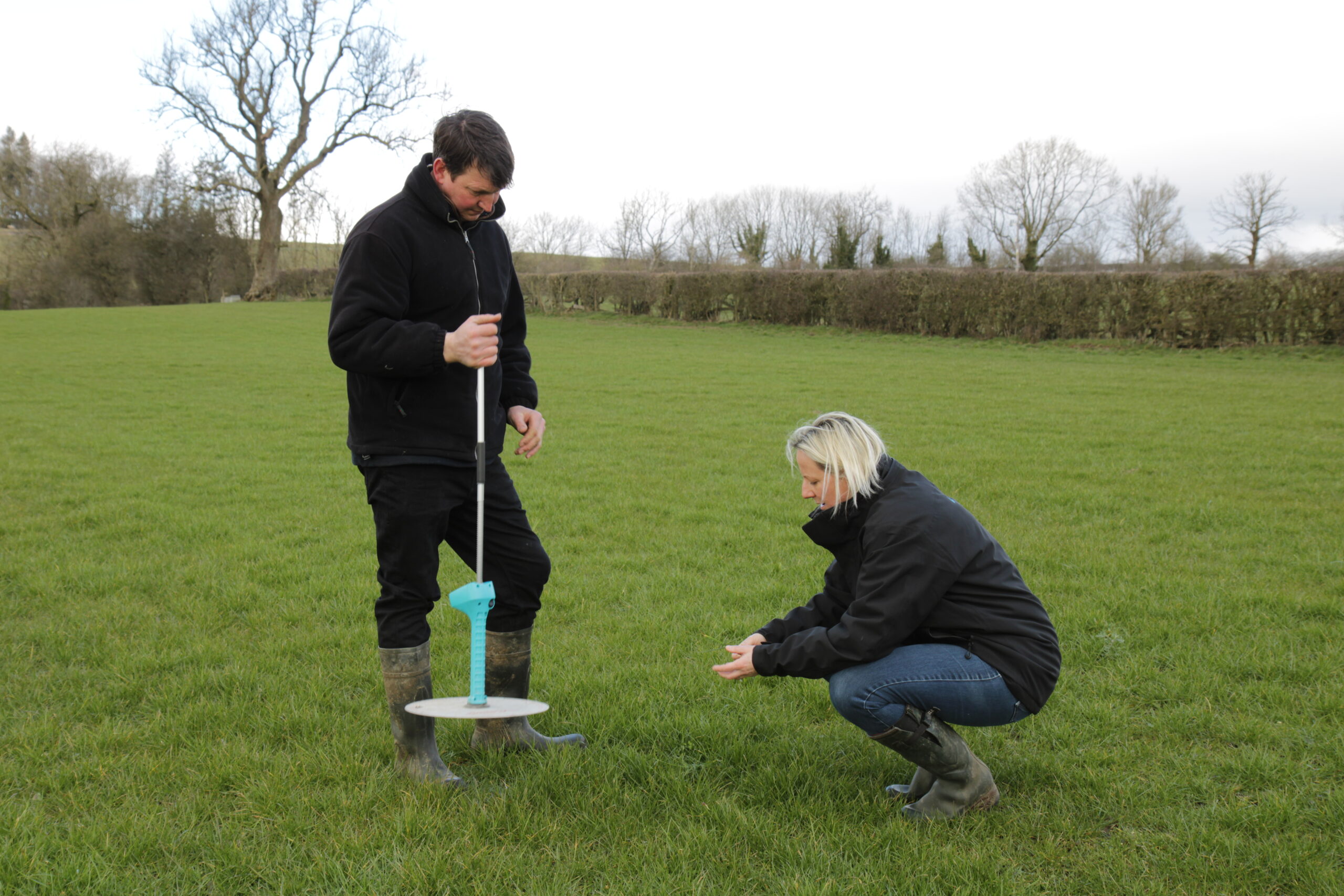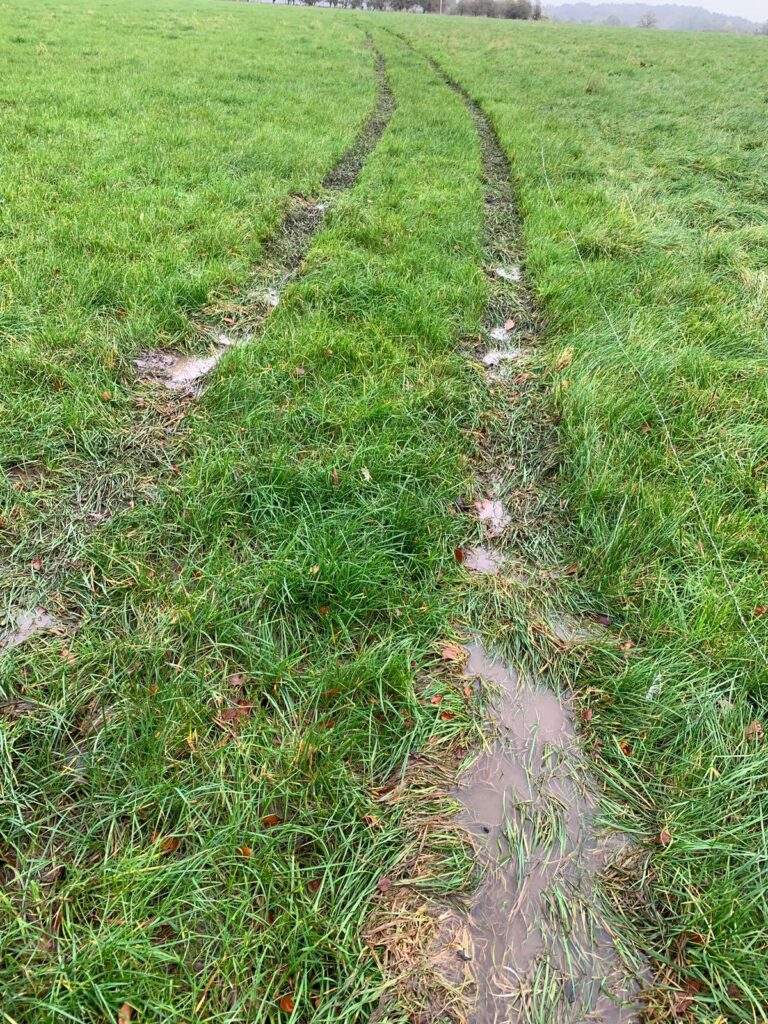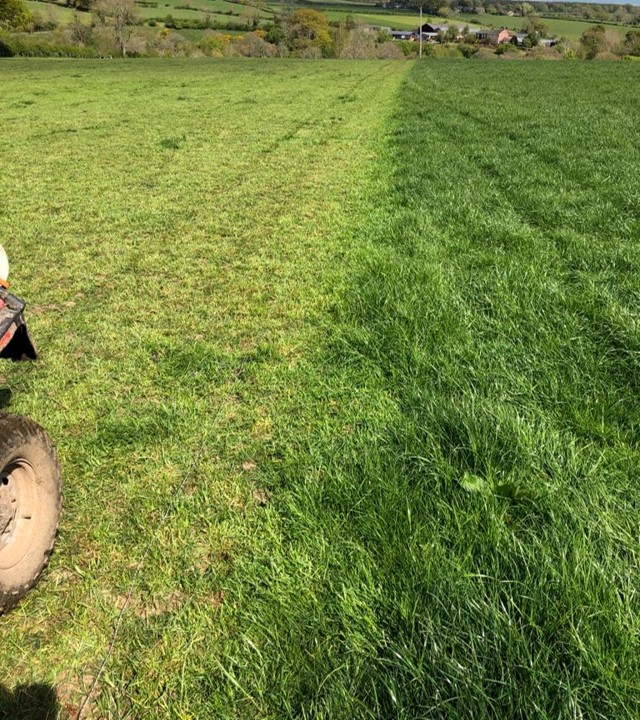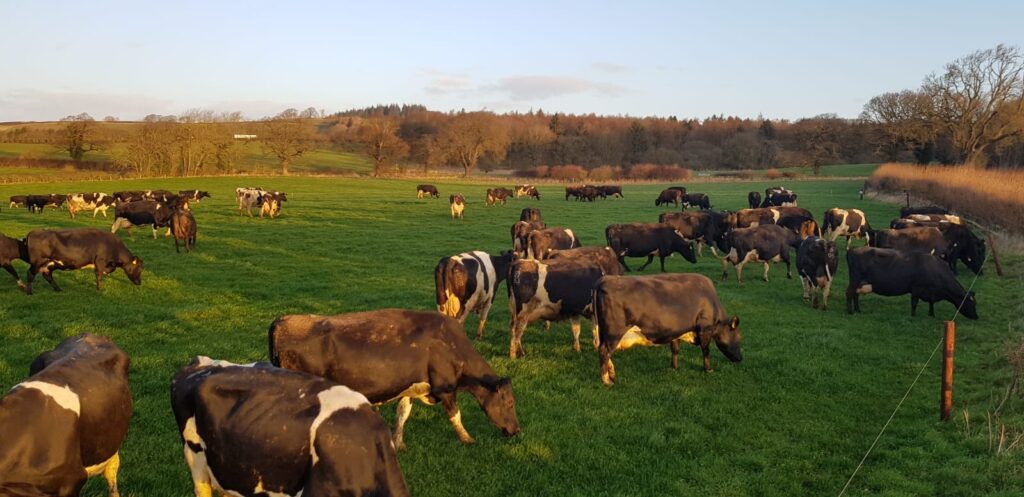Bess has spent nearly 15 years helping British farmers adopt sustainable, profitable grazing practices – drawing on knowledge that spans three continents.
From classroom to farm gate
Born in Zimbabwe, raised in New Zealand, and with Irish citizenship, Bess brings a truly global perspective to British farming. Her journey to agricultural consultancy followed an unconventional path, beginning with degrees in Archaeology, Design, and Education from the University of Otago.
“I was teaching Design and Technology until I moved to Ireland with my then-husband to travel,” Bess explains. When Ireland’s economic downturn (the “death of the Celtic Tiger” as she puts it) made employment opportunities scarce, an opening with LIC UK presented itself at just the right moment.
“I jumped at the chance to join the sales team, replacing a Kiwi staff member who was returning to New Zealand,” she recalls. From there, Bess’s role evolved organically, eventually leading her to the consultancy position that perfectly matches her skill set.
Teaching skills meet farming knowledge
When previous consultants returned to New Zealand, Bess recognised how her background could fill the gap.
“I felt my teaching skills gave me an ideal background to support LIC in this area,” she says. After seven months shadowing the outgoing consultant, she transitioned fully into the consulting role.
“My teaching background with teenagers gave me good facilitation and group management skills,” she laughs. Combined with her experience of pasture-based production systems across New Zealand, Ireland, and the UK, creates a unique perspective that farmers across her region have come to value.

Overcoming challenges to drive farm profitability
The transition wasn’t without its hurdles. “Initially, the accent barrier made the role mentally draining,” Bess admits. “Talking, listening and understanding all the different accents across my area required a huge amount of concentration.
There was also the challenge of credibility as a New Zealander advising British farmers. “Initially, there was a tendency for farmers to remind me how different farming is in the UK compared to New Zealand,” she recalls. “But tenure in my role has largely removed this barrier.”
Celebrating farmers’ success
What keeps Bess motivated after 15 years? The transformative impact of her work on farm businesses and families.
“To still be working with farmers who are now achieving the resilient profitability and lifestyle balance that was missing from their farming careers previously is humbling,” she reflects. “In some cases, it has been the survival of a family dairy business.”
Her approach has evolved over time, becoming more tailored to the British farming mindset. “Over time I have learned that not every farmer is ready to ‘hear’ the advice I give. Toning down my Kiwi tendency to be upfront and ‘say it like it is’ has been helpful in convincing farmers to instigate positive change.”
Looking to the future of pasture-based farming
Always keeping an eye on innovation, Bess has developed a particular interest in regenerative farming practices and how they can be applied to commercial dairying – an area where she continues to learn, often alongside like-minded farmers.
“LIC has been very supportive of my interest in regenerative farming practices,” she says. “The research in this space seems to be well behind where these early-adopting farmers are operating.”
After 15 years, Bess’s enthusiasm for pasture-based systems remains undimmed. “I still see so much potential for pasture-based farming systems in the UK,” she says. “I’m always excited to find the next group of farmers who are ready to go on a journey!”
With her unique background, teaching expertise, and genuine passion for helping farmers succeed, Bess Jowsey continues to play a vital role in bringing New Zealand’s grassland expertise to British dairy farms – one field at a time.



